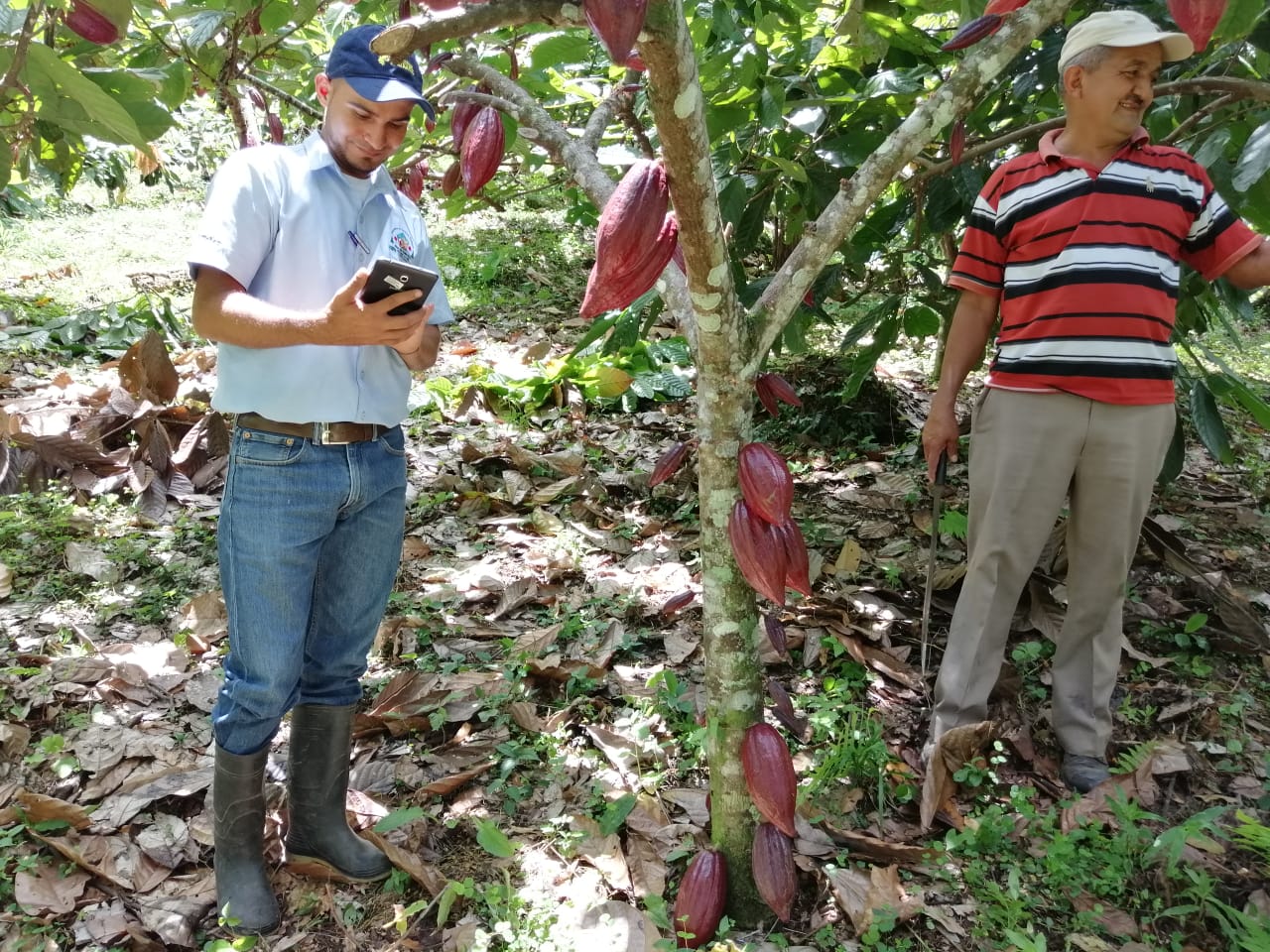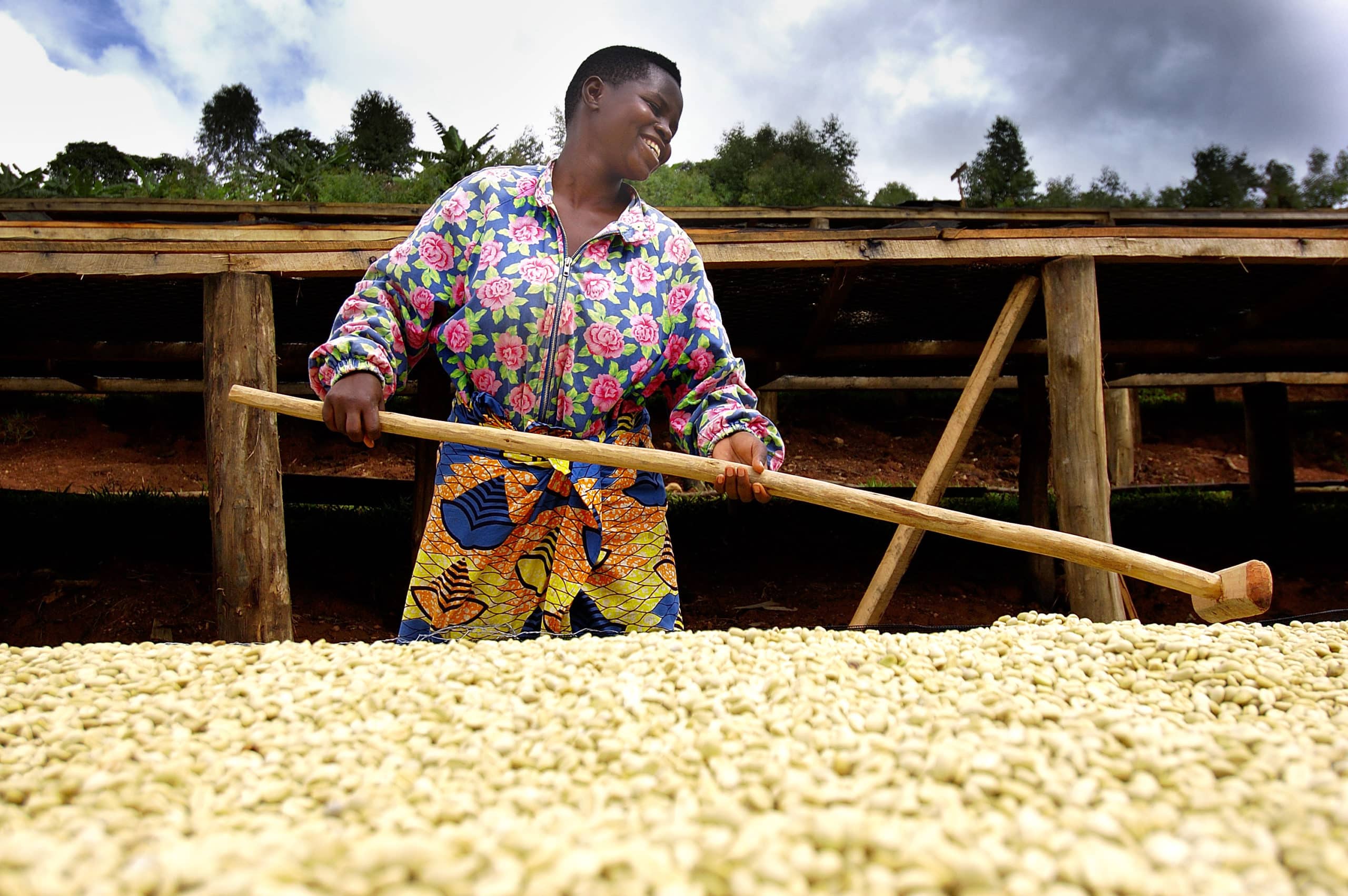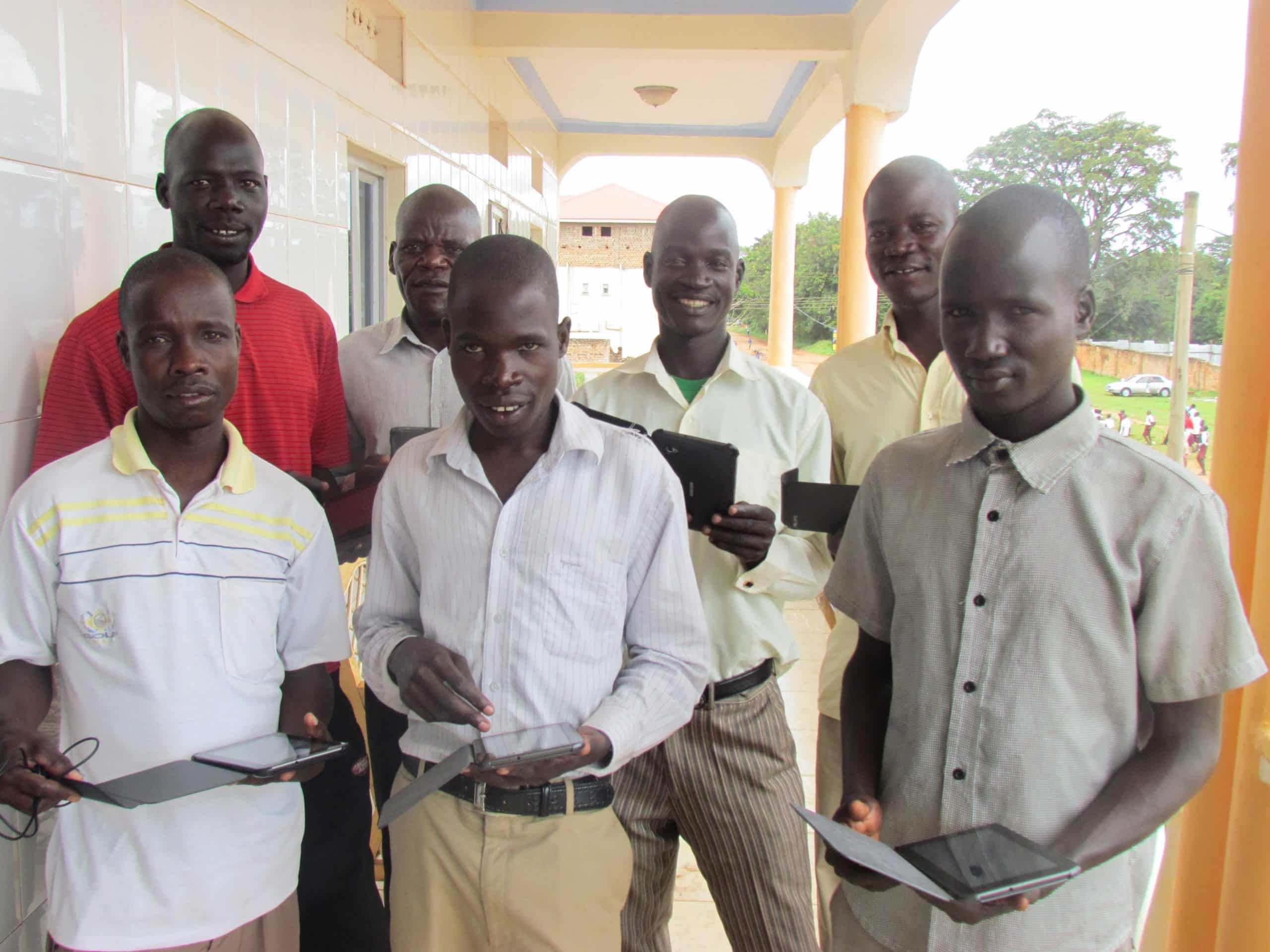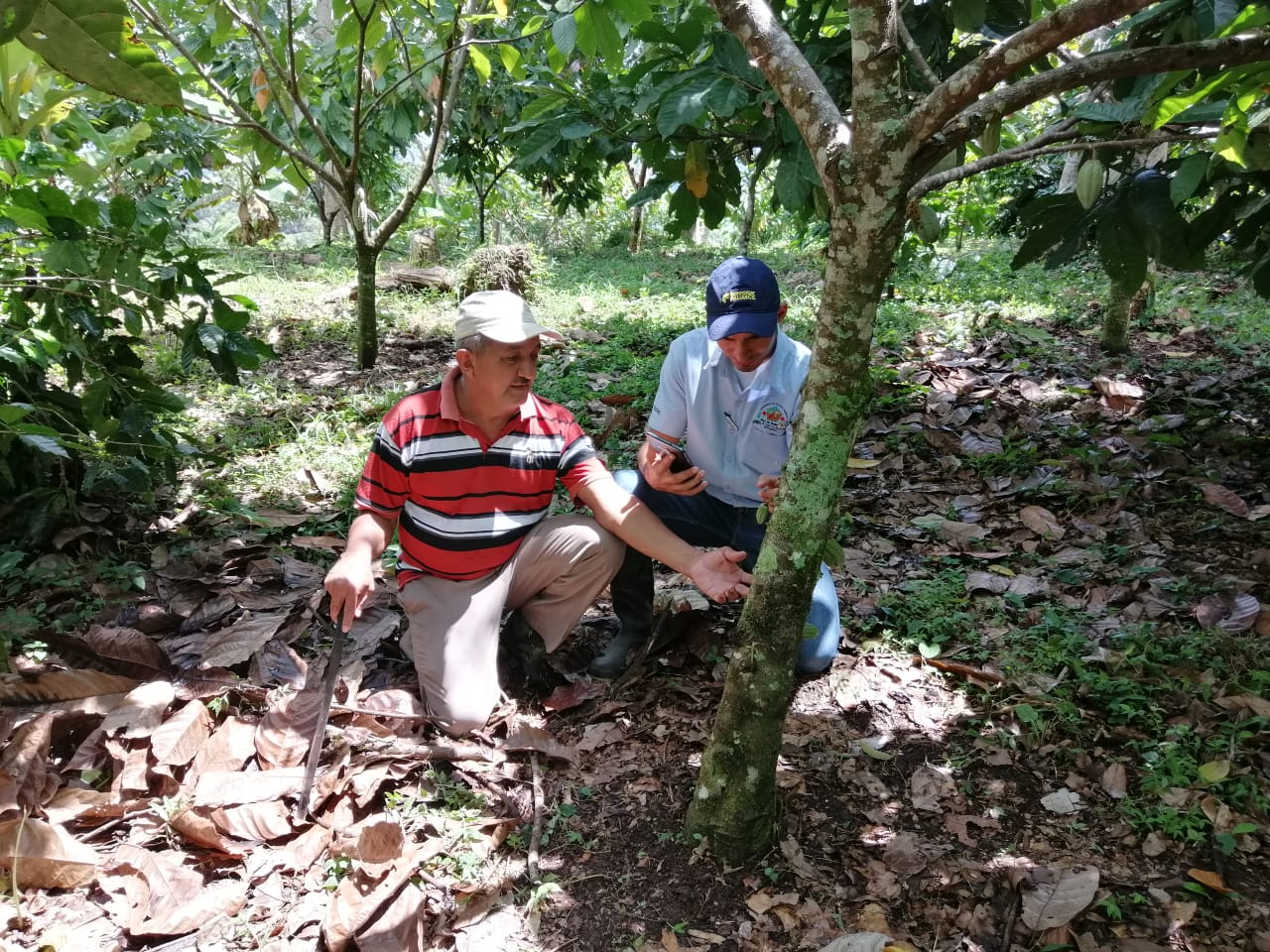
This post originally appeared on the website of the Pace Able Foundation.
The town of Lonya Grande sits in the mountainous region of Amazonas, Peru. It is here, hours by car from the nearest major city, that the coffee cooperative CECAFE has its headquarters. Members of the cooperative live even farther afield, down winding roads in the shadows of the Cutervo National Park.
Rural enterprises like CECAFE serve communities that are vulnerable to climate and market shocks, and are best situated to help them overcome these challenges. Twenty years ago, our founder, Willy Foote, recognized the transformational power of rural businesses, but also saw that they lacked access to the resources they needed to grow. He formed Root Capital to solve that problem by providing financing to rural enterprises at the end of the dirt road.

But a number of years ago we realized that something was missing. Many of the remote areas in which we work lack the formal education opportunities available in cities. This means that the enterprises we financed were sometimes missing the tools necessary to unlock their full impact.
To combat this, we developed our advisory services program, which connects staff at rural enterprises with the know-how they need to facilitate business operations and growth. Through on-site trainings and centralized workshops, we provide our clients with the skills necessary to manage credit—not just from Root Capital, but eventually from other commercial and social lenders. In this way, we can truly spur sustainable change in rural communities. As our clients have faced new challenges, our advisory services have evolved from a narrow focus on financial management skills to a broader menu of agronomic, climate adaptation, and related advisory services.
But the impacts of climate change are accelerating and agricultural commodities like coffee and cocoa are experiencing prolonged, unsustainable price crises. These 21st century challenges require 21st century solutions. That’s why we’ve spent the last four years pioneering a suite of advisory services that leverage mobile technology to make rural enterprises more agile and efficient.

Data collection is nothing new for our clients. Buyers, certifiers, and funders impose any number of external data-reporting requirements on agricultural businesses. While these stakeholders care about the statistics they receive, they are not concerned with how those data points are collected. The result is cooperative offices filled with hundreds of mismatched pages, scrawled in pen. These sheets then have to be manually entered into single-use spreadsheets by technical staff whose time and expertise would be better spent providing urgent agronomic assistance to farmers. This is a stark reminder to social enterprises that set reporting requirements—regardless of what sector they work in. While the right data need to be collected, enterprises need to make that request reasonably unburdensome to the clients they are trying to serve. Requests should align with existing data collection requirements to the extent possible.
Instead of adding to the noise, we work with clients to confront this messy challenge with a clean, mobile solution. We share a platform that cooperative employees can use in the field to upload data directly to the cloud through simple tablets. Through initial capacity-building workshops and continuing technical support, our advisory team ensures that our clients’ data are digital from the point of collection. This saves time and money while also decreasing the risk of human error. What’s more, we work with these businesses to identify key performance indicators and develop dashboards to track these indicators in real time. This information isn’t simply sent to third parties abroad; it can also be harnessed to benefit the business and its farmers. If a social enterprise expects a new system to be adopted by a resource-strapped organization like an agricultural business, then that system needs to be valuable to their core business functions.

So what does this look like? In the Peruvian Amazon, as climate change increases temperature volatility, crop diseases are on the rise. This has led to decreasing yields and imperiled the incomes of local farmers. Meanwhile, a low international coffee price means that the thin margins of coffee production have gotten even thinner for businesses like CECAFE—making it increasingly important to decrease costs and ensure sound inventory management. The future of the cooperative—and of its farmer-members—relies on being able to adapt to these kinds of challenges.
Our advisory team worked with CECAFE to identify what type of information collection would best support their response to agronomic and market insecurity. They focused not just on how to collect this data, but also how to synthesize it into information that the cooperative can act on. Considering factors such as organizational size, technological hardware, and internet access, we helped develop questionnaires and a database alongside the employees who will actually be using these tools.
In addition, cooperative employees spent a full month combing through a years-long backlog of forms. The process of inputting handwritten data into a computer program—and organizing it—was neither quick nor easy, but it allowed CECAFE to access and analyze historical data that would enable them to improve their predictive power and evaluate changes over time. This type of participatory systems design is central to the work we do at Root Capital. The staff members of the clients we serve are invaluable resources—and ultimately the only reason our investments have the impact that they do. The key to our services is not the technology itself, but the people and processes that use it to capture value for the business and the community. Social enterprises need to effectively leverage on-the-ground partners to develop truly long-term, sustainable change within organizations.
The cooperative is now beginning to integrate their farm-level data with information from their sales and agronomic extension departments. This allows them to optimize harvest estimations, increase sales, and improve income for members. Meanwhile, the cooperative’s agronomic extension team is beginning to harness these aggregated data to inform their response to the diseases plaguing farmers’ coffee plants. By creating a holistic digital database that covers all aspects of the enterprise, CECAFE is ensuring they are as prepared as they can be to adapt to the challenges facing their business today.

Root Capital’s mobile advisory approach continues to evolve in response to the needs of clients like CECAFE. With the help of our donors we are currently developing a scalable, cloud-based platform that will improve the efficiency of our existing services. This will enable small and growing businesses to share their digital information with buyers and partners at the push of a button. By leveraging digital technology, we can help cooperatives like CECAFE strengthen their relationships, their business, and eventually their communities.
Root Capital’s mobile advisory services are supported by a number of generous partners, including Cartier Philanthropy, the IKEA Foundation, IDB Lab, Keurig Dr Pepper, the Pace Able Foundation, and USAID.
Photos © Root Capital

